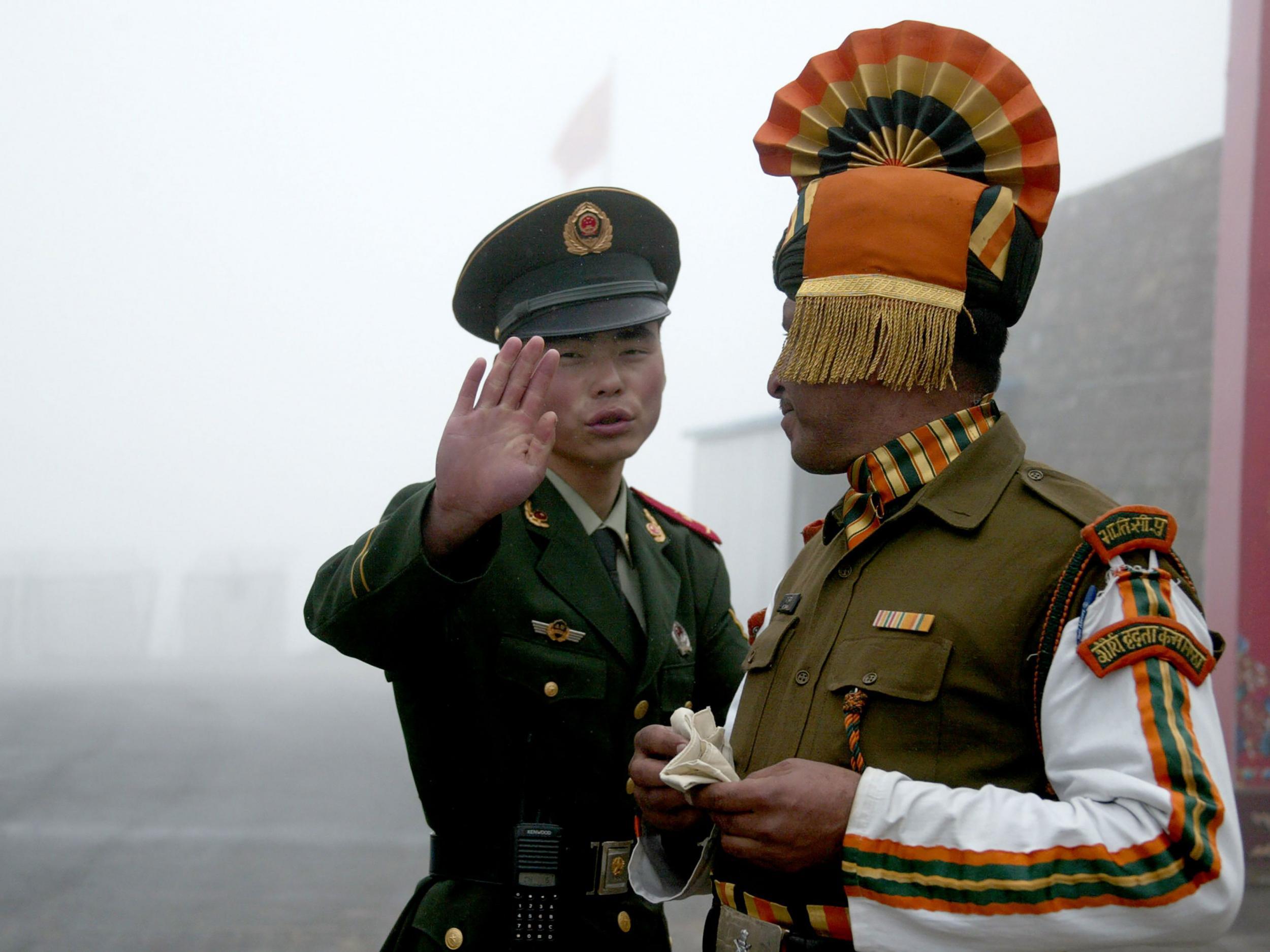India and China 'preparing for armed conflict' if Bhutan solution not found
The stand-off over the Doklam Plateau has been running for two months

Indian and Chinese military forces are reported to be preparing for the possibility of an armed conflict over a disputed area in the Himalayas should a peaceful solution not be found.
The standoff began two months ago when Indian troops confronted Chinese forces working on a road over the Doklam Plateau, a strategically important area near where Tibet, India and Bhutan meet, and which both China and Bhutan – an ally of India – claim as their own.
China has demanded that Indian troops withdraw before it will hold talks with the country, while India has called for each side to stand down.
The South China Morning Post reported that sources close to the Chinese military have claimed the People’s Liberation Army (PLA) has plans to deploy aircraft and strategic missiles against India’s troops in the event of conflict breaking out, in order to limit the action to skirmishes.
“The PLA will not seek to fight a ground war with Indian troops early on. Instead it will deploy aircraft and strategic missiles to paralyse Indian mountain divisions stationed in the Himalayas on the border with China,” a source told the newspaper on condition of anonymity.
In his Independence Day speech on Tuesday, Indian Prime Minister Narendra Modi spoke of the country’s capabilities in the face of security challenges, The Times of India reports.
Mr Modi did not directly reference the border dispute, but asserted that “security is our priority”.
“It is clear that security of our country is our priority. Internal security is our priority. Be it sea or borders, be it cyber or space, India is capable of tackling every security challenge,” he said.
In a separate report, the newspaper claimed that ceremonial border personnel meetings between India and China appear to have been affected since the stand-off started.
A source told The Times of India there are up to eight of these ceremonial meetings a year, which include speeches, cultural performances and an exchange of gifts. The Indian army reportedly did not cross the border on 1 August for the 90th anniversary celebrations of the PLA, and China’s army has allegedly not responded to an invitation for India’s Independence Day celebrations.
Professor Steve Tsang, Director of the SOAS China Institute, told The Independent it is unlikely that either side will escalate military action as “neither side wants a conflict at this point”.
“At the moment we are looking at a stand-off that is going to last for a while, I don’t see the Chinese or Indian side escalating into conflict,” he said. “But we do have a lot of boys with a lot of fancy toys facing each other in an emotionally charged area, so the risk of things getting out of hand cannot be eliminated.
“If the military disciplines on both sides hold, I don’t expect them to escalate because it is not government policy. Neither side is willing to stand down but neither side wants a conflict at this point.”
Last week sources told Reuters news agency that India’s military had increased its operational readiness along the eastern Indian border with China, though it was stressed the alert level had been raised as a matter of caution.
"The army has moved to a state that is called 'no war, no peace'," one source said. The order issued to all troop formations in the eastern command two weeks ago means soldiers are supposed to take up positions that are earmarked for them in the event of a war, the source added.
The move followed failed diplomatic efforts to break the stalemate, other sources with close ties to the Modi government told Reuters earlier in the week.
China has repeatedly warned of an escalation if India did not order its troops back. The state-controlled Global Times, which has kept up a barrage of hostile commentary, said last week that if Mr Modi continued the present course at the border, Beijing would have to take "counter-measures".
Rhetoric printed in local media has fuelled tensions between both sides over the past month.
In July the BBC reported a Delhi newspaper as stating that China had warned the stand-off “could escalate into full-scale conflict,” while state-run media in Beijing had started running old reports and pictures from the brief but bloody 1962 Sino-Indian War, in which China made decisive territorial gains.
Additional reporting by agencies
Join our commenting forum
Join thought-provoking conversations, follow other Independent readers and see their replies
Comments